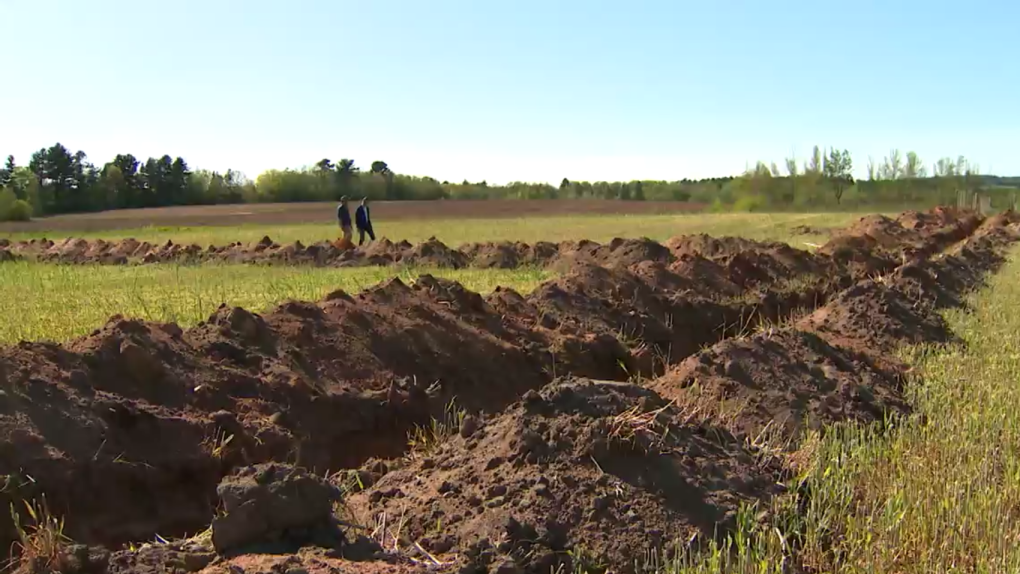Global Courant 2023-05-29 05:58:00
Farmers in Atlantic Canada are increasingly concerned about drought, as many regions on the East Coast are classified as drier than normal for this time of year, with little rain in the forecast.
As of late April, numerous parts of New Brunswick, Prince Edward Island, Nova Scotia and Newfoundland and Labrador were “abnormally dry,” according to the Canadian Drought Monitor, with some areas in New Brunswick, Nova Scotia and PEI marked as experiencing “moderate drought.”
The lack of rain has consequences: In Nova Scotia’s Annapolis Valley, food producers are using their water reserves two months earlier than expected.
William Spurr has done what he can to keep his fields from drying up while much of his crop is still in the ground. But he says a hot, dry spring and unusually cold nights made growing conditions difficult.
“We just irrigated nonstop,” Spurr, president of Horticulture Nova Scotia, told CTV National News. “For the past two and a half weeks we have probably irrigated as much as usual in July and August, and it’s not even June yet.”
Spurr says he planned to install a costly irrigation system later this summer, but had to do it now to make sure he didn’t lose a batch of young apple trees.
“I’m a little worried about what could happen if we don’t get rain,” he said. “If this continues, we’re going to have a big problem.”
Greg Donald, general manager of PEI, says many potato growers in the province have only received a quarter of the rain they normally get in both April and May.
“If we get rain in the next few weeks, like good rain, we’ll be fine, but if it doesn’t, it’s going to be very worrying,” Donald said.
According to Environment and Climate Change Canada, parts of New Brunswick and Nova Scotia experienced the driest April on record.
A mild winter, followed by a sudden cold snap that dropped temperatures to -20, also took its toll on many farms, including the one in Wolfville, NS
“That killed all the blossoms in the peaches and nectarines — 90 percent of the cherries and 80 percent of the plum blossoms are affected,” Andrew Bishop of Noggin’s Farms told CTV National News.
Researchers continue to point to climate change as the main cause of these unpredictable weather events.
Increasingly, extreme weather events are becoming more erratic as the planet warms, with weather conditions swinging from one end of the pendulum to the other, experts say.
“It’s either the coldest temperature in June — in 2018 we had that frost — or it’s the coldest winter temperature we’ve had in the last 25 years, or it was one of the warmest winters we’ve had,” Harrison Wright, researcher at Agriculture Canada, CTV told National News.
Farmers say they are relieved that some rain is forecast, but they will need much more in the coming weeks to improve growing conditions on the surface.
With files from Alexandra Mae Jones of CTVNews.ca








